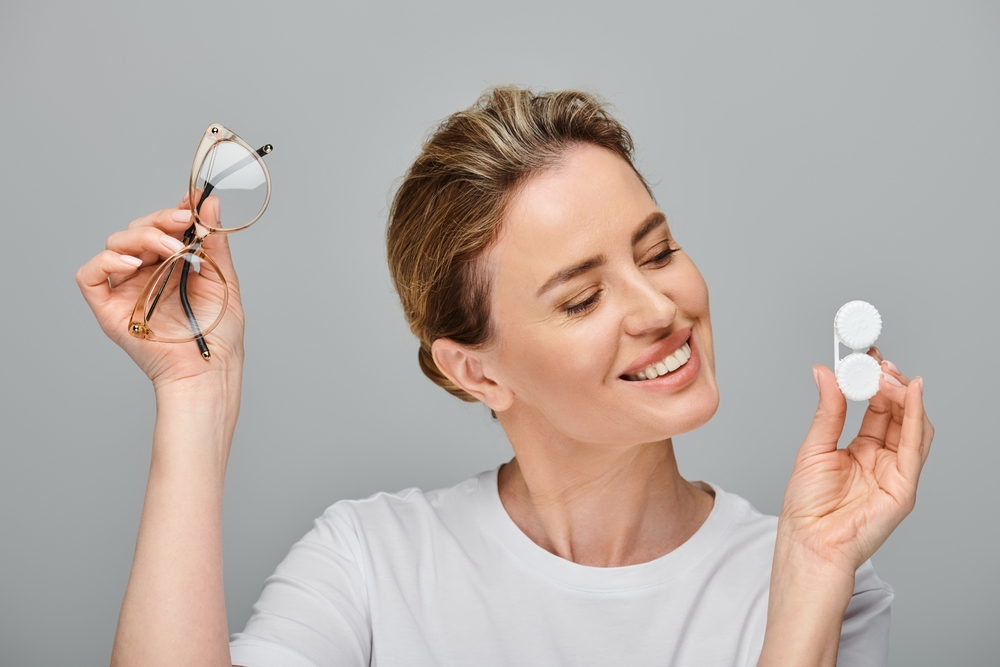
Wearing glasses can be a hassle for some people, especially during certain activities like sports, outdoor adventures, or when you simply want to have an unobstructed field of vision. Contact lenses can provide a convenient and flexible vision correction option. They allow you to enjoy a wider range of activities without the limitations of glasses. Additionally, many people find that contacts can enhance their appearance and self-confidence, as they provide a more natural and unobtrusive look
The Importance of a Contact Lens Exam
Before you can start wearing contact lenses, you'll need to undergo a comprehensive contact lens exam with an optometrist. This exam is crucial, as it will determine the most suitable type of contact lens for your unique eye shape, prescription, and lifestyle needs. During the exam, your optometrist will:
Measure the curvature of your eyes to ensure a proper fit
Assess the overall health of your eyes and tear production
Determine your exact prescription and any astigmatism or other vision issues
Discuss your lifestyle and preferences to recommend the best lens options
Types of Contact Lenses Available
There are various types of contact lenses available to suit different vision needs and lifestyle preferences. Soft contact lenses, made from flexible plastic, are the most common and offer comfort and ease of use. They are available in daily, weekly, or monthly disposable options. Rigid Gas Permeable (RGP) lenses, though less common, provide sharper vision and are more durable, making them ideal for people with certain vision conditions like astigmatism or keratoconus. Your optometrist will help you determine the best type of contact lens based on your prescription, eye health, and lifestyle needs.
Contact Lens Care and Maintenance Tips
Proper contact lens care and maintenance are essential for the longevity of your lenses and the health of your eyes. Neglecting these important steps can lead to eye infections, irritation, and other complications. Here are some key tips to keep in mind:
Cleaning and Disinfection:
Always use the contact lens solution recommended by your eye care provider.
Follow the manufacturer's instructions for cleaning and disinfecting your lenses, which typically involves soaking them in solution for a specified time.
Never use water, saliva, or any other liquid to clean or store your contact lenses.
Lens Replacement:
Replace your contact lenses according to the recommended schedule, whether it's daily, weekly, or monthly.
Avoid wearing your lenses for longer than the recommended duration, as this can increase the risk of eye infections and other issues.
Handling and Storage:
Always handle your contact lenses with clean, dry hands.
Store your lenses in the appropriate storage case, filled with the recommended contact lens solution.
Keep your contact lens case clean by rinsing it with solution and allowing it to air dry.
Regular Eye Exams:
Schedule regular check-ups with your eye care provider, even if you're not experiencing any issues.
These exams will ensure your contact lenses are still fitting properly and that your eyes remain healthy.
By following these best practices for contact lens care and maintenance, you can enjoy the benefits of contact lenses while minimizing the risk of eye-related problems.
Schedule Your Contact Lens Exam with Marana Eye Care Today
Transitioning from glasses to contact lenses can be a game-changer, providing you with increased flexibility, convenience, and confidence in your vision. However, it's crucial to approach this transition with the proper preparation, guidance, and commitment to proper lens care.
At Marana Eye Care, we are dedicated to helping you navigate the transition from glasses to contact lenses. Visit our office in Tucson, Arizona, or call (520) 337-2300 to schedule your comprehensive contact lens exam and get started on your journey to clear, comfortable vision.











